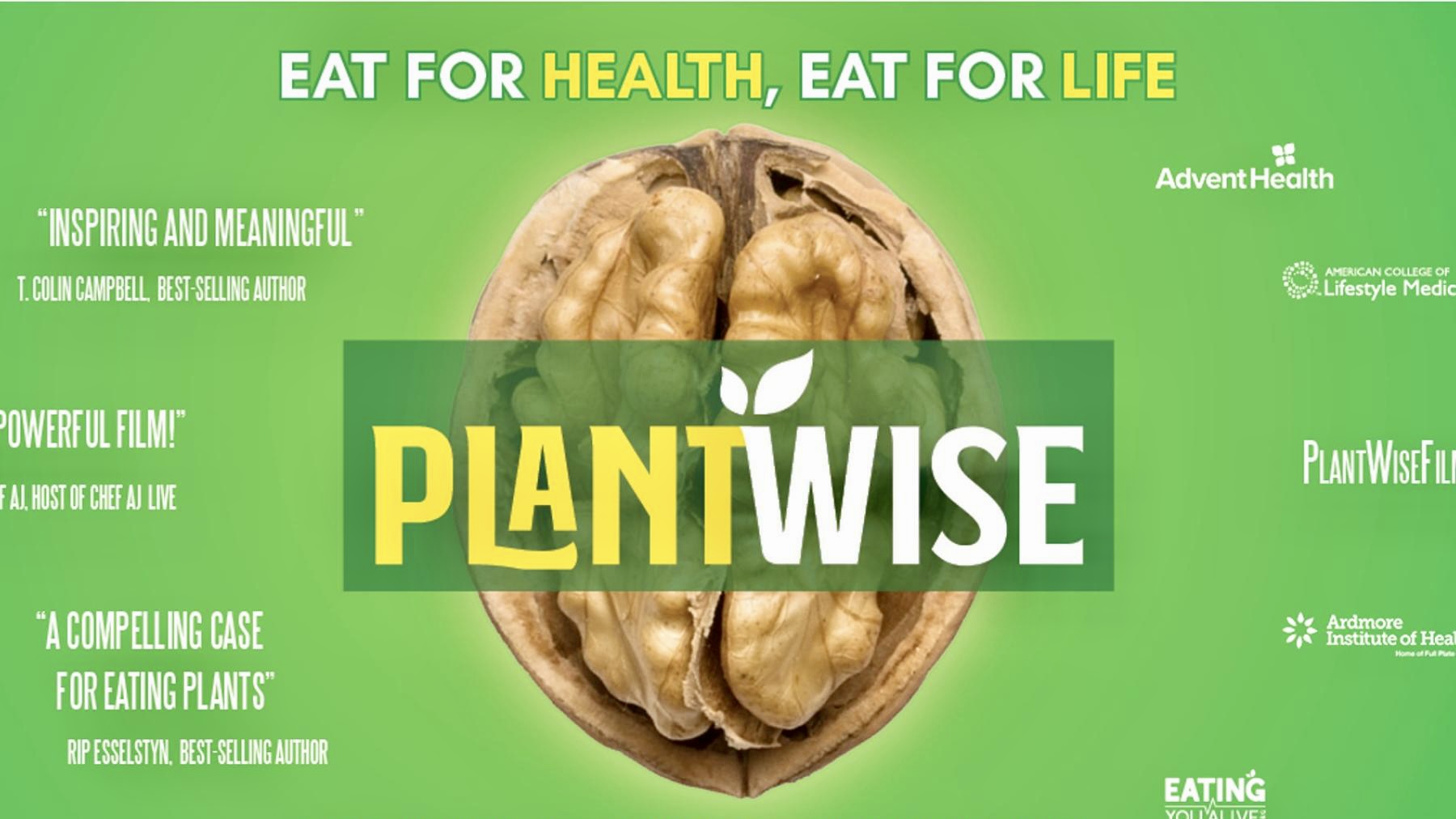By Gary Patterson — In an ironic twist of the legal process, one of Scripture’s most significant questions is asked by a man who did not comprehend the implications of his inquiry nor wait for the answer in the one place he might have found it. Jesus stands before Pilate who is struggling over a decision whether to punish a man he does not believe to be guilty or to free him and risk a riot among the people he is supposed to be able to rule. It is not an easy decision. Principle and pragmatism are often not easy bedfellows.
In response to Pilate’s interrogation, Jesus states, “I came into the world to testify to the truth” (John 18:37 NIV). Pilate, in his well-trained skepticism, is accustomed to hearing opposing testimonies both purporting to be the truth. And he asks, with somewhat of a sneer, I imagine, “What is truth?”
It is a good question, one we all too seldom ponder. What is truth? Is it my perception of the way things are? Is it the perception of the church? Is it the word of the teacher or the will of society? Is it the consensus of some authoritative group? Is there somewhere an absolute pure crystalline truth which we may reach—or at least reach out to? Is it the words of Scripture, or the words of Ellen White, or the words of the General Conference in session? And if it is any of these, whose ensuing interpretation of this truth is correct?
Christians share a common source of truth, the “Scriptures.” And prime among texts supporting this stance are the words of 2 Timothy 3:16, “All Scripture is given by the inspiration of God.” How do we know that? This may seem to be an impertinent question, given our long-standing acceptance of the idea. But it is not impertinent. Indeed, it is an honest, even a needful, question to ask. Do we accept Scripture as truth on the basis of such claims in the text?
Or do we accept it as truth because someone told us it was the truth? When faced with the full reality of these questions, we often opt for a third declarative possibility. It is true because I believe it. Yet any of these three notions taken alone, and to extreme, is dangerous.
To accept the authenticity of a sacred text on the basis of its internal claim to Divine origin would force us to accept any document which purports such credentials, regardless of its content. Such would be an incredibly contradictory and polytheistic position. Yet accepting the authenticity of a sacred text on the word of another is to become a papist.
It matters not what “father” has told us—biological father, father church, or other father figures we might choose as our authority—for when we abandon individual responsibility for such decisions, we give ourselves over to papism.
Further, to accept or reject a sacred text on the basis of our own personal judgment—having checked it out by and for ourselves—is to become an existentialist. Accepting only what we perceive and experience on our own exposes us to limited horizons and helical reasoning. Before we go further, we should attempt a working definition of a “sacred text.” For the purpose of this investigation, let us say that a sacred text is a collection of documents, sayings, or instructions held in respect and taken as of Divine authority and origin within a community of believers or adherents.
With this definition, we recognize that there are many “sacred texts.” There are sayings of Confucius, the Book of Mormon, the Koran, the Pentateuch, the Holy Bible, the Testimonies—we could go on at length. These are taken as being of Divine origin and are given authority in a community of believers. They serve in varying degree as the source of authoritative principles for their adherents. It must be observed, however, that authority is not universally inherent in these texts by themselves. This is evident in the fact that one community does not accept the authority of another community’s sacred text. Rather, the authority of the text is a derivative, granted by a community of believers and adherents who accept them.
But how is this authority derived? There are two primary methods by which such authority is established. These are reason and force. Reason appeals to logic and truth. It invites rational examination of the facts. It calls for intelligent decisions. Force, on the other hand, resorts to strength over weakness, the granting of favors or the denial of needs. It seeks to buy allegiance through the manipulation of one’s response to pleasure or pain.
There is a tendency to assume that truth is the derivative of authority. But this is the case in the “force” model which is not acceptable as a Christian viewpoint. It does not present a valid image of God who appeals to reason among free-willed individuals. Authority is a derivative of truth. And when authority deviates from truth, it is no longer reliable as an authority. That is how we know not to trust it. The truths of the Bible are not true because the Bible is the authority. Rather, the Bible is the authority because it speaks the truth. God’s words are not authority because He spoke them. Rather, since He always speaks the truth, He is the authority. Indeed, He is the very source of truth.
In this setting, it is significant to contrast the rational approach of Jesus with the authoritative mentality of the priests. While Jesus was teaching in the temple courts, they came to him and asked, “By what authority are you doing these things and who gave you this authority?” (Matthew 21:23 NIV). No appeal to reason or truth is in their words, only to power.
Jesus easily confounds this approach with a reasonable question regarding the work of John the Baptist. “Was his baptism of God or of man?” The priests are in a dilemma. If they say of God, they support both the work of John and Jesus; if they say of man, they risk the ire of the people. It is again the conundrum of principle and pragmatism. So, they refuse to answer. Instead, “they looked for a way to arrest Him, but they were afraid of the crowd because the people held that He was a prophet” (Matthew 21:46 NIV). They sought to exercise authority not by reason, but by force.
As noted at the outset, it was His comment about truth and His purpose in life which occasioned the inquiry of Pilate. He said, “I came into the world, to testify to the truth. Everyone on the side of truth listens to me” (John 18:37 NIV). For Jesus, authority is established by a rational appeal to truth, not by force.
Merely to claim godly origin does not make a sacred text. If the claim alone were to establish the veracity of a given message, then we would be obliged to accept every self-appointed prophet who came along. In fact, Scripture warns us that many false “christs” and false prophets will come. It will be necessary for the Christian community to exercise a judgment factor in every claim to Divine authority. We are to “try the spirits.” It is to be done according to “the law and the testimony.” Reason and truth are to prevail.
Misuse of revelation takes many forms—the false prophet, the misguided charismatic, the individual who refuses to reason because, as they say, “I have prayed about this and God has shown me . . . .” There is no reasoning with such as these. When one assumes to have received the direct word of God on a given matter, it is no longer possible to enter into meaningful dialogue with them in which we attempt to test the validity of the revelation.
The charismatic no longer sees need to reason the Scriptures because their perception of the “truth” has been confirmed to them in supernatural manifestations. Even the impressions of the one who has “prayed” about their concerns become a blockade to Scriptural reasoning. Such spurious “revelations” result in the rejection of reason. Supernatural revelation cannot be the authority by which truth is judged. Rather, it is just the opposite. Truth is the authority by which revelation is judged. Indeed, our scriptural canon of sacred texts was determined by councils of the church. It came to its present accepted makeup about the end of the fourth century A.D. at the Third Council of Carthage (A.D. 397).
How were such decisions made? We can only guess, for no record of the process is extant. But one assumes that the process would not be significantly different than that which we would employ in similar circumstances. Not all the books if of the Bible are the message of “inspired prophets.” Some indeed are, such as Daniel and Isaiah, for example. Others are historical material. Some, such as Luke, even indicate that they are compilations of other recorded accounts. Still, other books are collections of songs, poems, or personal stories, and some are even private letters to individuals.
The source of all godly inspiration is the same. Source is not the issue. The issue is the purpose of the message, and the breadth of the intended audience. Some inspired works are of a passing and transitory nature. Others are for a wider audience and longer duration. Thus, we ask the wrong question when we seek to establish authority on the basis of inspiration. It can only be judged by the people to whom it is addressed in the full light of truth and reason.
Canon is the work of the people of a given community. God may or may not be part of such work. We, as Christians, would agree that He was an active force in the establishment of our “Holy Bible”. But we would question that He was involved with the Koran, for example. Yet in the Muslim community, the Koran is taken as the word of God (Allah). Canon is the work of a community, and the option available to the individual is choosing or rejecting a community which adheres to a given canon, unless we wish to establish our own canon individually.
Peter observes that “no prophecy of Scripture is of any private interpretation” (1 Peter 1:20). His reference is to the work of the Holy Spirit on the prophets of old. But the same principle may apply to the use of Scripture within the Christian community. It is not of private interpretation. That same Holy Spirit is operative within the community today, saving us from the folly of our own narrowness. This principal applies, not only to prophetic messages, but to scriptural interpretations as well.
Ultimate truth does exist in God, but individual perceptions of it are affected by the perceptual filters through which it is observed. All human instruments—including the writers and communicators of sacred texts—do their work in the setting of such perspectives and viewpoints.
Of this fact Ellen White observes, “The writers of the Bible had to express their ideas in human language…The writers of the Bible were God’s penmen, not His pen… The words receive the impress of the individual mind… The mind is not cramped, as if forced into a certain mold.” (Excerpted from 1 SM pp. 19-22).
In the Seventh-day Adventist Church community, the Christian canon is set and accepted. And in this context, we have been fond of the Lutheresque phrase, sola scriptura, as a description of our attitude toward the Bible. Yet even Luther, with his fond protestations otherwise, did not practice such an extreme position. If indeed this were to be our position, then there would be no place for church and community authority. Every individual would be required to make all judgments privately without the aid of Christian community.
Rather, the church has practiced prima scriptura in its relation to the Bible and its communicants. Indeed, Scripture is the primary and first authority of the church, but it is not the only authority. All other authorities must be derived from and checked by Scripture.
But we do not recognize reality if we seek to deny that other authorities exist. If it were not for church authority, there would be no means of reaching consensus and no establishment of accepted doctrine. Anyone could believe and practice anything they chose. Such a situation would be chaotic. The community defines and interprets Scripture in such a way that individuals are either drawn together or separated by variant views. Thus, the individual chooses one given community of faith and rejects others.
There is a place for the church fathers and mothers, both past and present. They do not supersede the Scripture. They are not equal to it. They are judged by it. But again, it is the community which makes judgments which establish or discontinue such leadership and authority. It is not a given. It is a derivative.
It is in this setting that we must also evaluate the ministry of Ellen White whose writings have become a de facto sacred text of the Seventh-day Adventist community. Our fondness for the phrase sola scriptura has placed us in a bind. A strict interpretation of it either rules out her writings as a sacred text, or we are obliged to elevate her works to the level of scriptural canon–a move which places us squarely in the camp of the cults. Yet a broader understanding of sacred texts saves us from these two extreme positions.
Unfortunately, we have not always related to the works of Ellen White as properly as our doctrinal positions have stated. Our doctrinal statement has clearly defined the position for years. She does not supersede, supplant, or even equal the scriptural canon. But we have not always behaved in keeping with our correct statement of position. Thus, based on our own inconsistencies, we deserve some of the criticism we face.
Yet there is validity in the authority of the community to determine a sacred text. With the model of prima scriptura, such texts will always be tested by and subordinated to the Scripture. This was ever Ellen White’s wish and instruction as again and again she indicated that her works were to be a “lesser light” to lead to the “greater light.”
These writings are not a sacred text for the Adventist community because she said so or because anyone person said so. She is a sacred text of the Seventh-day Adventist Church because the appeal of truth in her works have made her so among our people. It is an authority derived among the people out of the appeal of truth in her works. This is frightening, I recognize. But it must be so, or our accep- tance of such writings are subject either to our own isolated judgment or to the judgment of someone to whom we have surrendered our judgment responsibility.
How then should we relate to our sacred texts? We must come to recognize the distinction between actual truth (what is) and perceived truth (what is knowable to myself). It is easy to forget the humanness of all we have and perceive. Not only is the Bible given to us through the “impress of the individual mind” but that which is perceived in the community, as well as the individual, also comes through the perceptual filters of human experience. Thus, we may be on the road to truth, but we must always recognize the humanness of our perceptions. The problem is not with our sacred texts, but with how we use and perceive them.
We need not fear to examine the truth; it will always lead us to God. A Pharisee by the name of Gamaliel once counseled his fellow leaders with words wise in our search for truth. If the “purpose or activity is of human origin, it will fail. But if it is from God, you will not be able to stop these men; you will only find yourselves fighting against God.” (Acts 5:38, 39 NIV).
–Gary B. Patterson is a retired Seventh-day Adventist pastor and leader. Members of Boulder Adventist Church, Gary and his wife, Rachel, live in Loveland, Colorado. Email him at: [email protected]




